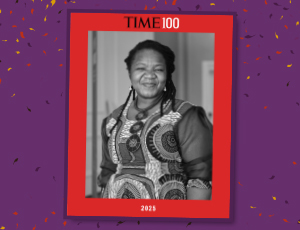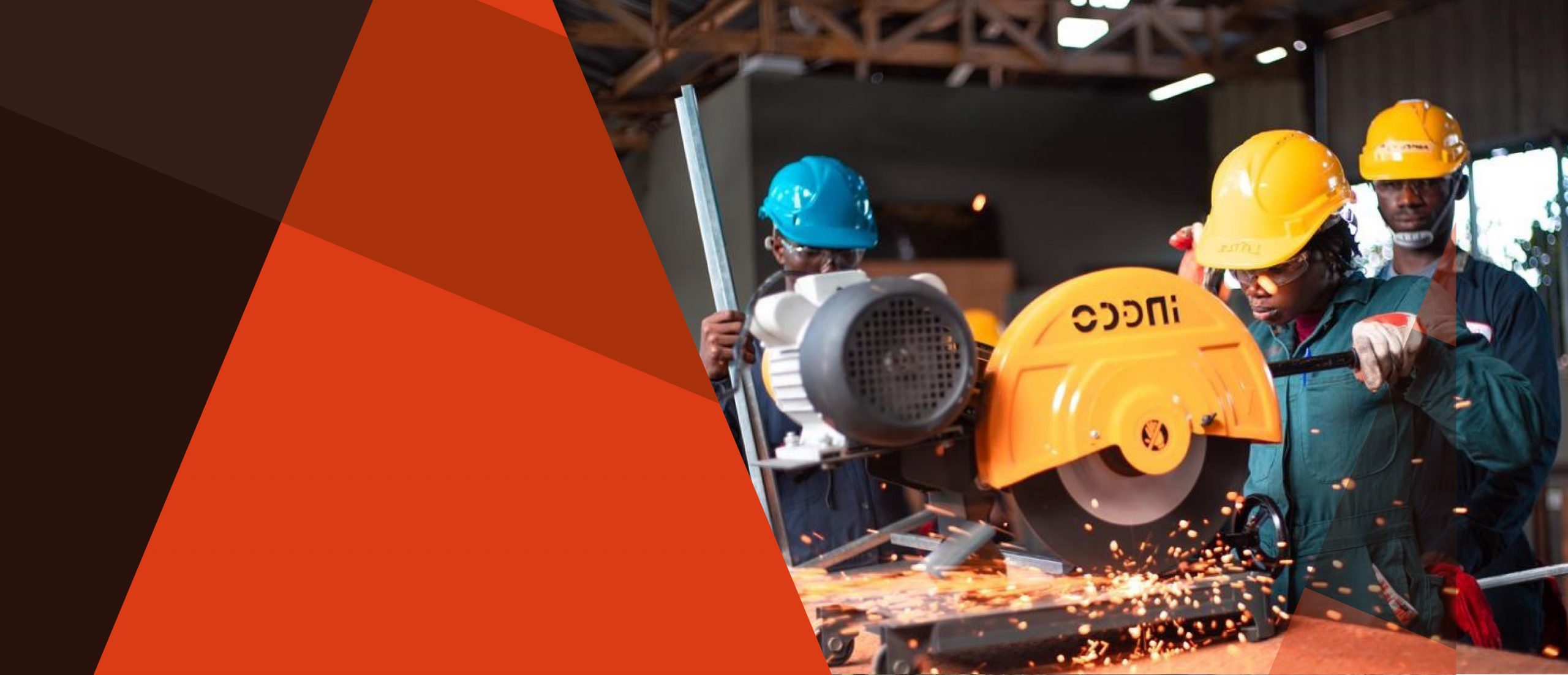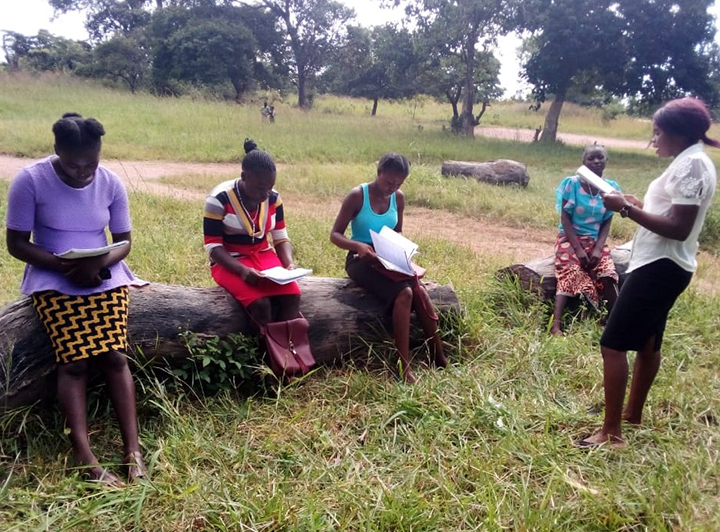
TIME100 Most Influential People
CAMFED CEO, Angeline Murimirwa, named to TIME’s list of the world’s 100 most influential people.


The combination of disruption to education and training, job losses due to business closures, and difficulty returning to work in a damaged economy, is leaving those young people already in precarious circumstances even more vulnerable. This World Youth Skills Day, we are highlighting the importance of technical and vocational education and training, especially for young women, whose future prospects will influence generations to come.
Before the pandemic, one in six young people aged 15-24 were not in education, employment or training in sub-Saharan Africa, more than 60% of which were young women.1 Now, COVID-19 has exacerbated the situation, with women and girls disproportionately affected as they take on the majority of household chores and caring duties, tend to have less secure jobs if they are employed, and are therefore the first to drop out of education or employment altogether. Investing in young women’s education and skills training is therefore critical if we are to avoid leaving a generation behind.
Eventually, the fear of going beyond the ordinary died off. I realized I can be anything.
Rosalinda, CAMFED Association leader, Ghana
Through our partnerships with governments and donors, CAMFED not only supports girls to go to school, but also into a life of independence and leadership post school. Graduates join the CAMFED Association of young women leaders, accessing skills training and tertiary opportunities,and passing on their knowledge to others.
CAMFED Association Transition Guides work within school communities across Ghana, Malawi, Tanzania, Zambia and Zimbabwe to support school leavers to make the transition from school to paid work. Despite schools closing their doors during the pandemic, Transition Guides have continued to work with young people in socially distanced study groups, or one-to-one sessions, sharing knowledge and offering advice and psycho-social support.

CAMFED Transition Guide sessions in Zambia, equipping young women with knowledge and skills, continued during the pandemic.
In addition, CAMFED is supporting young women to access technical training and adapt their existing businesses in order to function in this rapidly changing environment.
With access to high quality vocational courses – such as through the Mastercard Foundation Young Africa Works strategy in Ghana (which sets out to support young people, especially women, to secure dignified and fulfilling employment) young women are being equipped to enter traditionally male dominated fields, often being the first in their communities to do so.
Engineering is male dominated but things are changing now. Women like me are fighting in their numbers to change the belief. Thanks to CAMFED, we are empowered to change the world, to turn the tide of poverty and to become responsible citizens and leaders of tomorrow.
Angeline, CAMFED Association member and Engineering Student, Zimbabwe

Angeline at Kwekwe Polytechnic in Zimbabwe.
Angeline from Zimbabwe is one of these young women. She nearly dropped out of school due to poverty when her father passed away. Identified by her community as in need of support, Angeline received a CAMFED bursary and other school going essentials.
She excelled in school and went on to study Electrical Engineering Instrumentation and Control Systems, a traditionally male dominated subject, at Kwekwe Polytechnic in Zimbabwe. With her new skills, Angeline aims to become the best instruments technician in the college and to provide for her family. As an important role model, Angeline is helping to raise the aspirations of girls in her community.

Sylvia working alongside her male peers at the Design Technology Institute, Ghana.
Sylvia from Ghana was supported through school by CAMFED. After graduating,she trained as a Transition Guide to help girls graduating from school to transition into the workforce or further training. Having faced significant hardship herself, Sylvia understands the challenges girls face staying in school and entering the competitive job market. Sylvia is studying Welding & Fabrication at the Design Technology Institute, as part of the Mastercard Foundation Technical & Vocational Education & Training (TVET) program. Training in this traditionally male dominated field, Sylvia is breaking boundaries and showing other girls what is possible. In the future Sylvia aims to start a welding business and to give back to her community by training and employing other young people.

Eva recently planted new crops of pawpaw and increased her pineapple crops in Tanzania. With her profits, she has been reaching out to vulnerable children in her community, supporting them to keep learning during the pandemic.
Eva, a CAMFED-supported student and CAMFED Association member, received training in bookkeeping and agricultural practices – in addition to an interest free loan – in order to open a fruit farm in Bagomoyo, Tanzania. When the COVID-19 pandemic forced her other businesses to close, she seized the opportunity to expand her fruit farm, planting new crops of papaya and doubling the size of her pineapple crops. The support and training she has received has been invaluable in enabling Eva to adapt to changing markets and invest in a storage facility to extend the shelflife of her produce. Eva knows how it feels to grow up in poverty. Using her business profits she has been supporting other children in her community to keep learning during the crisis, providing essentials like study packs, pens and paper. Eva has big plans for the future and is participating in a program at Sokoine University of Agriculture to improve her farming skills even further.
On World Youth Skills Day, the achievements of CAMFED Association members like Angeline, Sylvia and Eva are a testament to the incredible multiplier effect of investing in young women’s skills training, as they go on to use their knowledge and profits to support more young people to learn, thrive and lead.
To lend your support make a donation here.
To find out more about CAMFED’s work to mitigate the impact of COVID-19 on girls’ education, read the latest on Forbes.
References
1. International Labour Organization, Global Employment Trends for Youth (2017), https://www.ilo.org/wcmsp5/groups/public/—dgreports/—dcomm/—publ/documents/publication/wcms_598669.pdf , p.22, Table 2.5, (accessed 14 July 2020)
Robert Lauck $27.7
Aann Golemac $10.9
Stephanie Boudreau $42.4
David Clifton $158
Cynthia Daneshfar $10.9
William Rutcosky $400
Kaisi Liu $6.7
ANN KINCAID $526
Nickey Hagman $29.8
Wendy Luo $158
Nina Hamilton $158
Corteria Baxter $42.4
David Stephenson £225
Michael Bailey $10.9
Carlos Guzman $50